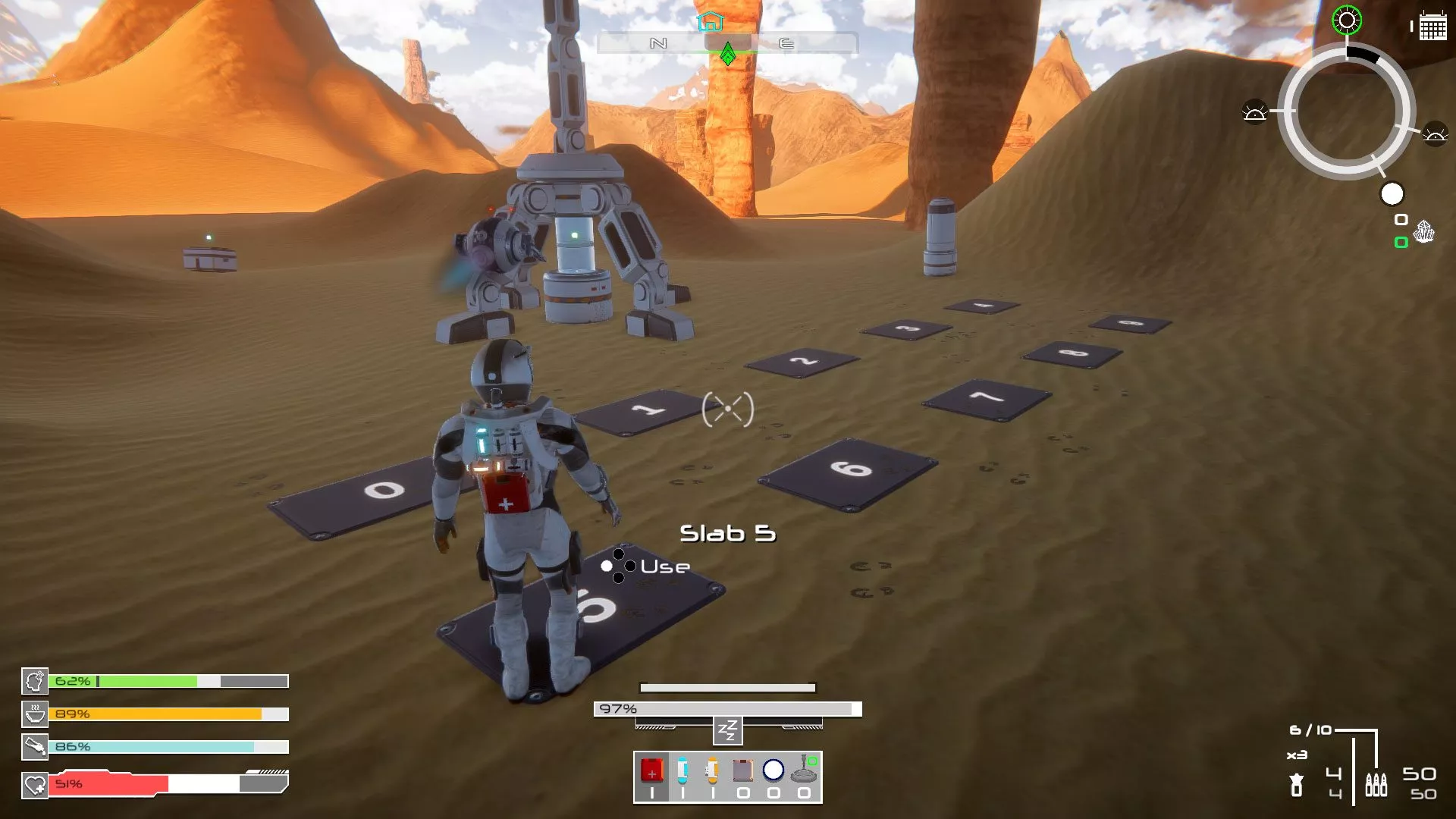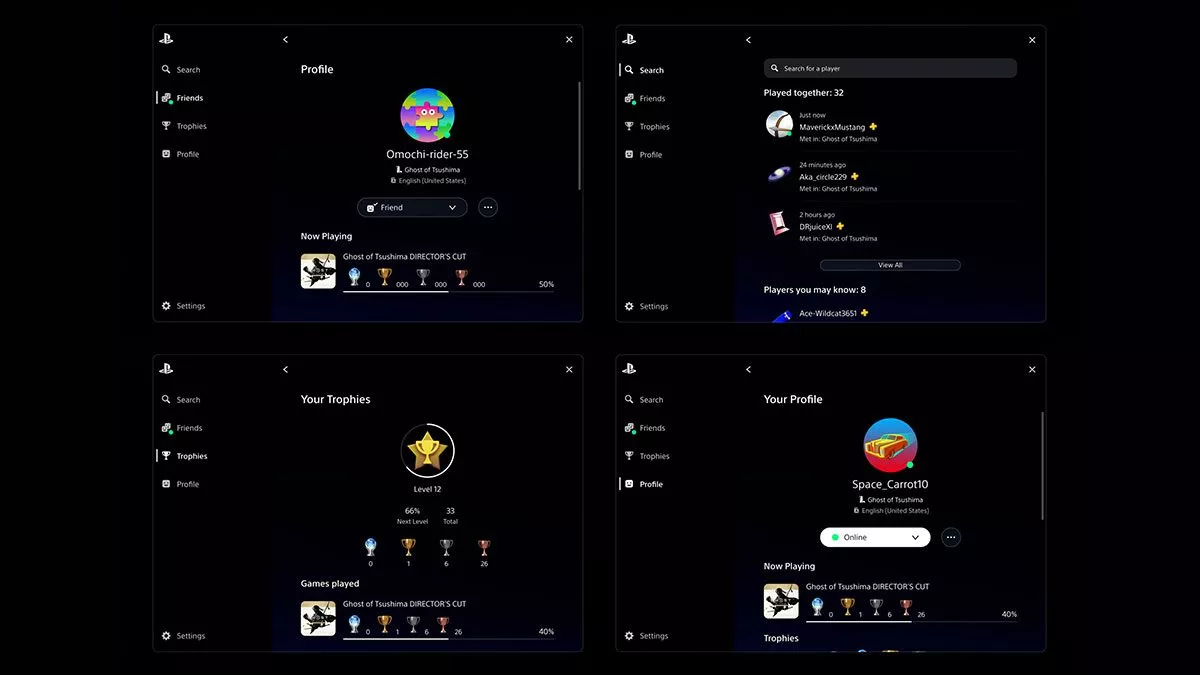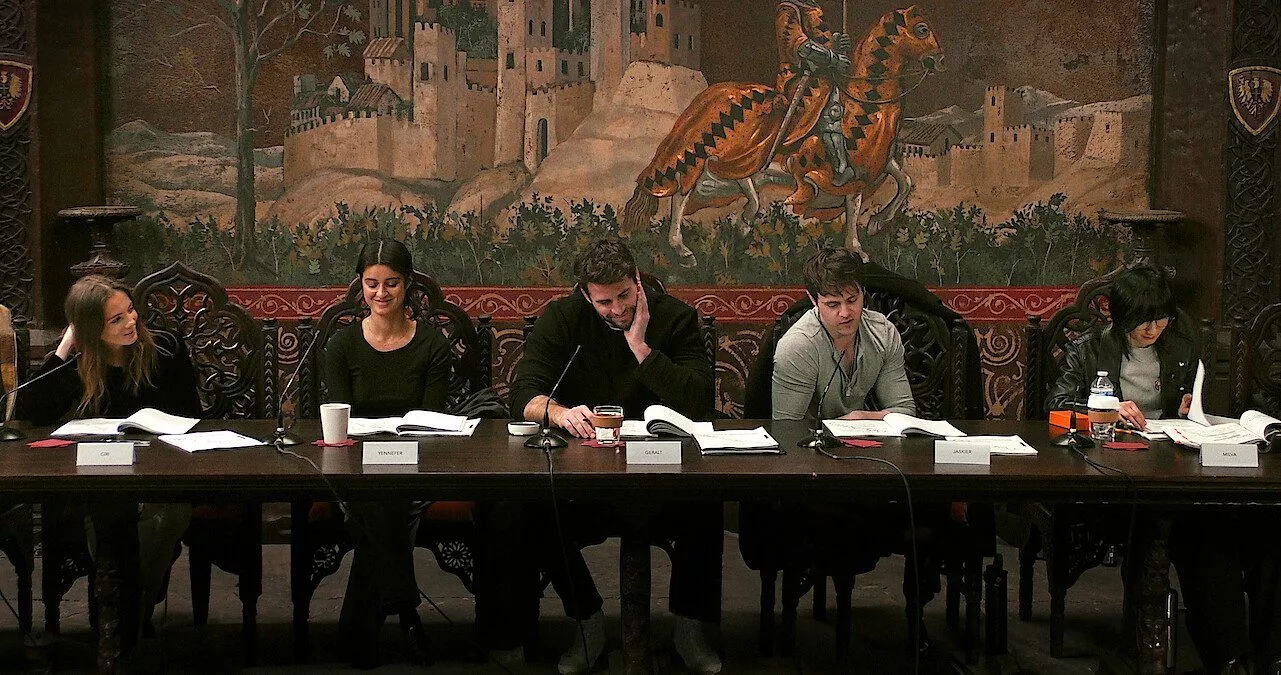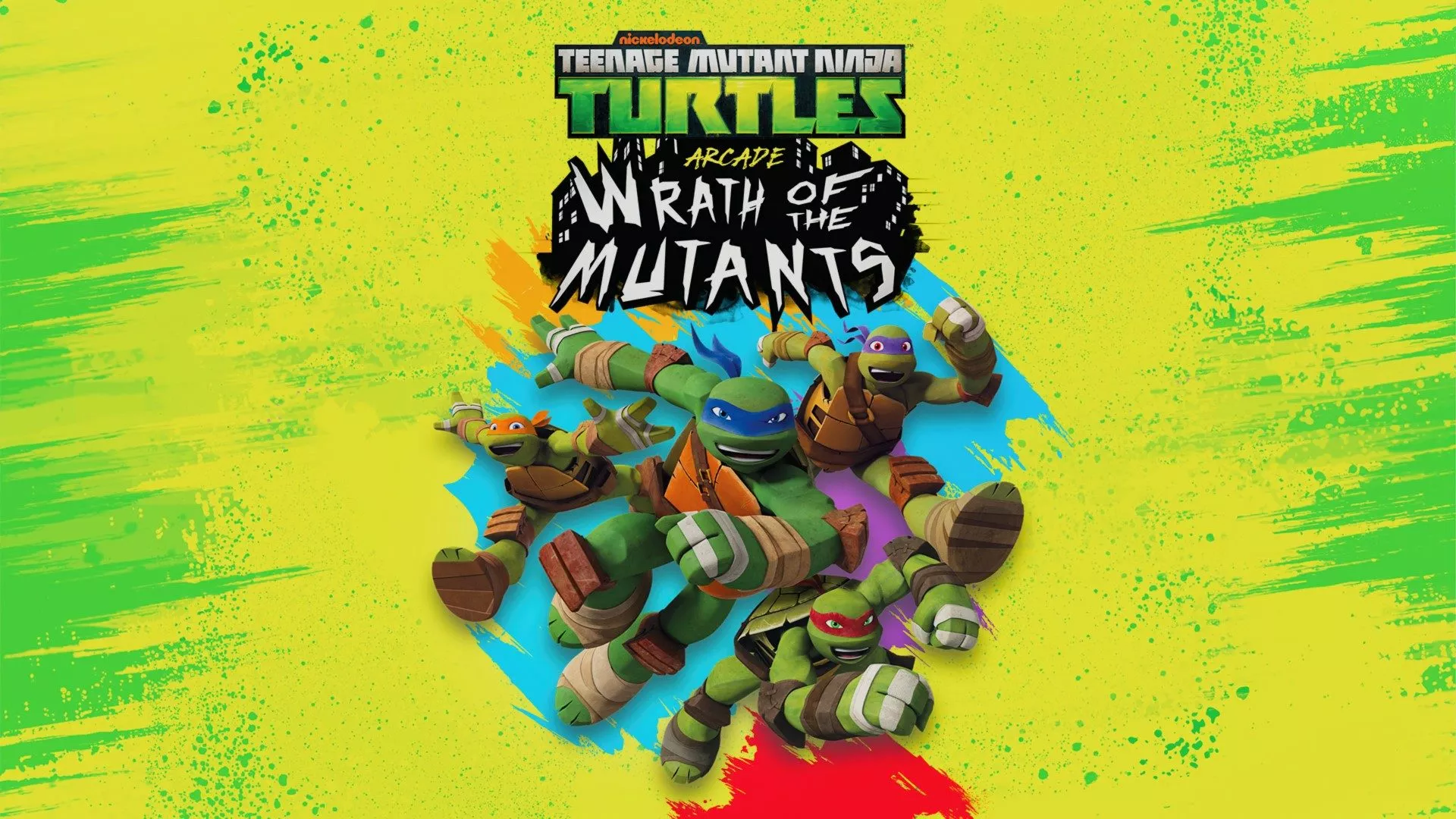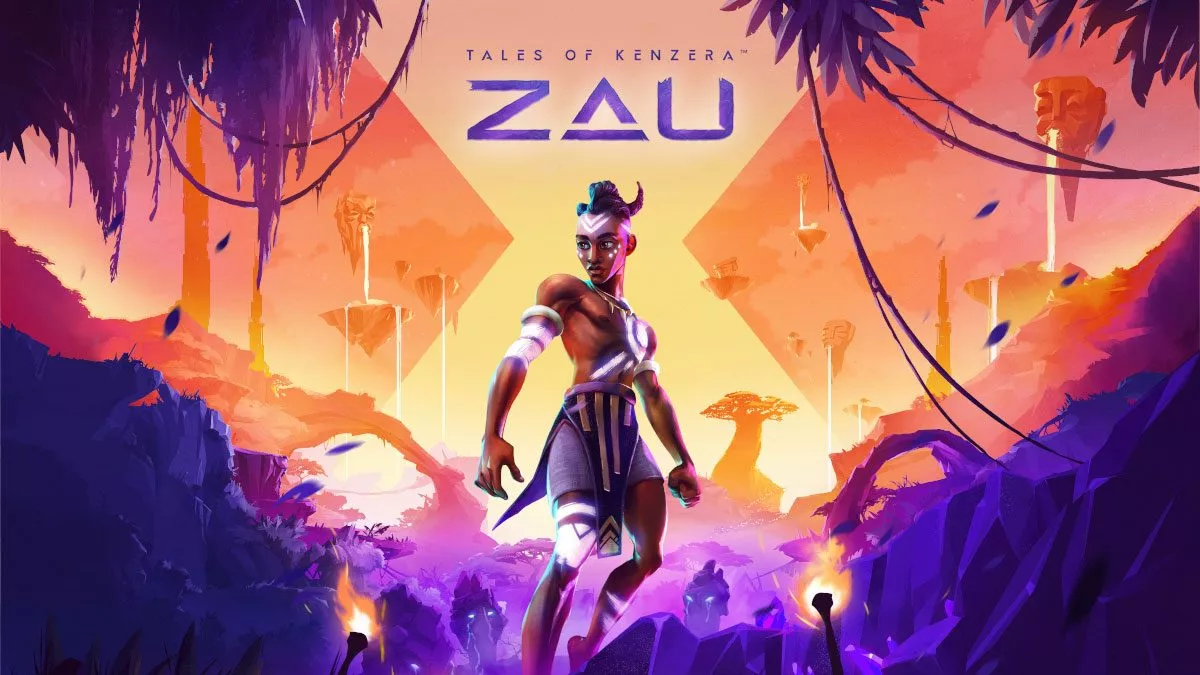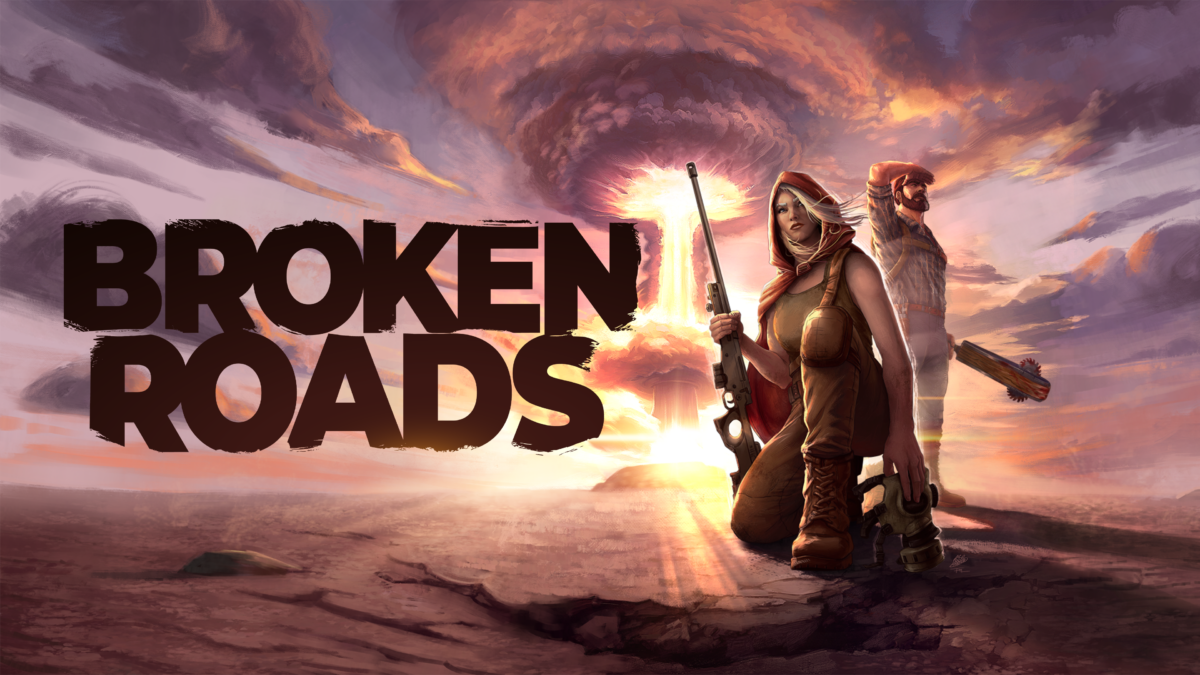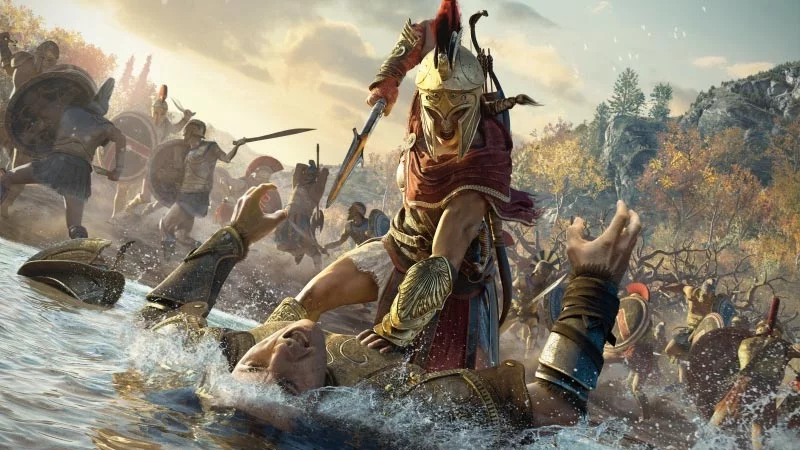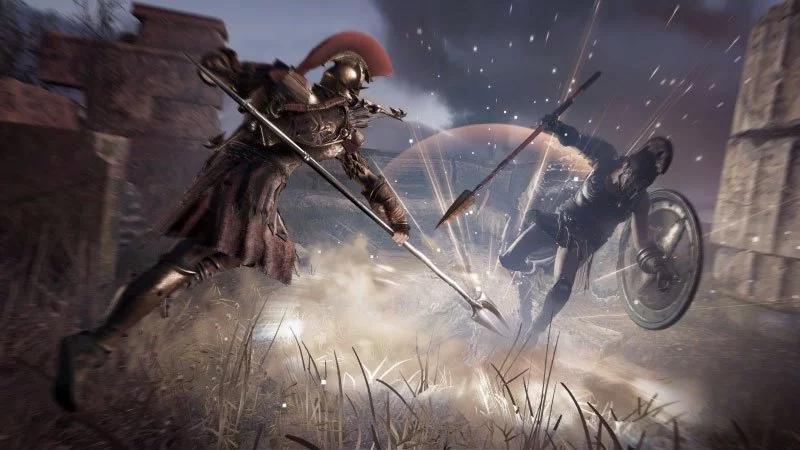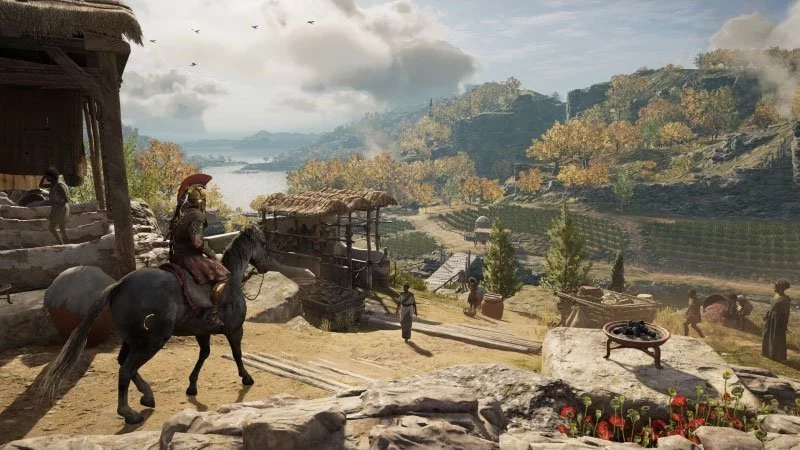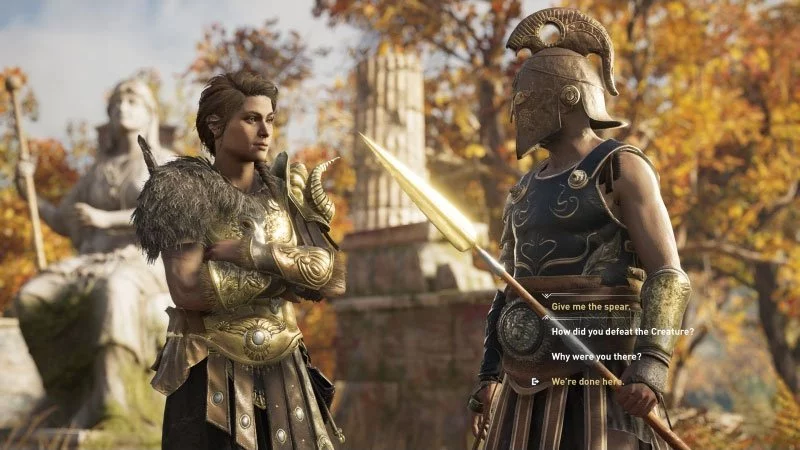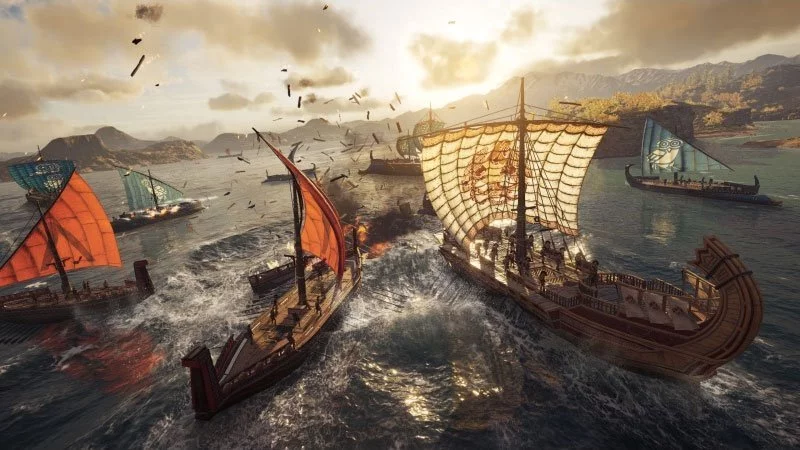Assassin’s Creed Odyssey’s pilgrimage to 431BCE Ancient Greece highlights colossal progress for a maturing series that has quickly reinvented itself after a well-deserved rest. If Origins re-established Assassin’s Creed as a modern franchise, Odyssey takes a considerable leap of faith. It ventures into the unknown with the introduction of mythical creatures and the most comprehensive and tactical combat system of any game in the series, as well as a deeper RPG experience. Player choice is at an all-time high in an odyssey truly yours to own.
During 90 minutes of hands-on gameplay, I became acquainted with protagonist Kassandra, the female option of the two playable characters, deeply engaged with tactical and frankly perilous gameplay, cruised around in a naval ship, and encountered a heated boss battle against the one and only Medusa as an introduction to the mythical elements now rooted firmly within Assassin’s lore.
The action sequences in Assassin’s Creed Origins were a drastic overhaul of the dated wait-your-turn encounters. The switch to triggers and bumpers to attack and defend conflicted with muscle memory, but eventually allowed new seeds to be sown and free flowing combat to evolve. But it wasn’t without fault. While there was a blend of ruthless power and stealth, and ranged and melee attacks, Bayek often became reliant on a single fighting style, and there was little motivation to deviate from the beaten path. Odyssey won’t allow that to happen.
My demo opened with a level 50 encounter; a brutal task for a newcomer unfamiliar with the controls, but the Ubisoft developers on-hand allowed my wave of consecutive defeats to pass without interruption, so confident their new combat system would click and fall into place (for context: developers are normally super quick to jump in when you suck at their game).
After coming to grips with the new controls, and learning the intricacies of a more tactical, vulnerable combat system, I began to grow in confidence and master Kassandra’s brutality, whilst embracing her weaknesses. There are two considerable changes: the lack of a shield and an ability system that makes you think beyond sword, ranged or assassination; though, all three remain important.
The abilities system engages a quasi superpower. Kassandra or Alexios (the male choice of protagonist) can map up to eight abilities to a selection wheel, with four ranged on the left trigger and four close combat on the left bumper, enacted with the corresponding face button. Hunter (ranged combat) abilities include being able to slow time when spotted, additional damage and the return of the precise Predator Shot. My first Warrior (close combat) ability was the self-explanatory and very powerful Spartan Kick. I also dabbled with controlling fire and a very handy shield breaker that bypasses an enemy’s strong defence. The third branch of the skill tree comprises of Assassin abilities, including being able to vanish, slow time and perform a Leap of Faith without a convenient bale of hay.
Some of these abilities will feel familiar, others are unlike anything we’ve seen before in the Assassin’s universe, but regardless it will take some time to acclimatise. Combined with the lack of a shield or even a reliable defensive stance, it’s a completely different creed to abide by. While you don’t bother to carry a shield, most enemies are wiser, at least at the high level of our demo. Having attacks easily repelled while you’re left wide open totally changes the dynamic of battle; it’s the opposite of the last-gen rhythmic combat. While there’s no doubt Kassandra or Alexios is a powerful talent, it manages to leave you feeling vulnerable in a six-on-one fight, as it should. Assassin’s Creed always strived to reach this point, but hadn’t managed to get there.
Instead of holding a shield and waiting to strike, Kassandra or Alexios has to dodge, parry and roll. The simple side-step doesn’t get you far away, but leaves counter-attacks in play, while the role takes you out of striking range, but also diminishes your threat of attack, and parrying demands impeccable timing, which is almost impossible to achieve when under attack from multiple angles. That’s where the abilities system comes to the fore. The value of a shield breaking technic speaks for itself, but how you choose to stagger the eight active abilities, and knowing when to use them, is your chance to turn the tide. Each attack drains varying amount of adrenaline, which ultimately fills to enable an Overpower attack that deals considerable damage.
The cost benefit analysis of using versus hoarding adrenaline was most pronounced during the culminating boss battle against the mighty Medusa – which I’m happy to report I won after what must have been my seventeenth attempt.
A great story beat sees Kassandra venture into the Petrified Forest after promising to reunite Bryce with her lost lover Ligeia. Because their love was forbidden, the two women had to meet in secret, and in retrospect they probably should have realised that sneaking around in a spooky, monster-infested forest wasn’t going to deliver their happy ever after. After bouncing around a few islands to gather intel, Kassandra and Bryce discover Ligeia has been consumed by Medusa, the powerful mythical beast who can petrify almost anyone and turn them to stone.
Fortunately, Kassandra is professedly resilient to her petrifying gaze, which only slows her movement, rather than transform her into a crumbling gargoyle like everyone else. Even so, it was a punishing boss battle, and I left feeling the most pride and satisfaction of any preview event, having finally bested the terrifying creature and her stone-men minions.
A few hours earlier, I read the press release announcing mythical creatures and legendary animals were merging with religion and the historical tradition of Assassin’s Creed. Considering Origin’s pride in its historical journey, the concept seemed like a sudden turn against the grain. However, by the time I encountered Medusa, after around an hour of gameplay, the mythical being felt completely at home in the world of Odyssey. I can’t wait to see more, but my initial trepidation quickly developed into excitement for the narrative surprises and engaging combat this departure from reality allows to flourish.
The glimpse of narrative already has me hooked, anchored by the branching dialogue that seems to have a genuine influence on narrative and gameplay. You can choose to be chatty and ask optional questions, marked in white, or skip straight to the progressive yellow options, of which there are often two. Speaking to a fellow journo, we had entirely different paths to Medusa based on our dialogue. He managed to bypass an entire battle against a feisty helmeted bloke, which resulted in my death several times but netted me a cool spear. Looking back, I couldn’t help but wonder how many deaths could have been avoided if I talked my way out of trouble. It remains to be seen how much we are really able to control, but being given the choice to engage in Bryce’s tragic love story invested me in these characters in a way AC hasn’t me since Ezio’s sage concluded. We already know Assassin’s Creed won’t return in 2019, but from what I have played of Odyssey, I am confident it is being left in the best place it has ever been during the next brief hiatus.
Ben Salter traveled to Cologne, Germany as a guest of Ubisoft. The arrangement does not impact our Ubisoft coverage, nor limit additional Gamescom coverage. Ubisoft covered flights, accommodation and meals.
This article may contain affiliate links, meaning we could earn a small commission if you click-through and make a purchase. Stevivor is an independent outlet and our journalism is in no way influenced by any advertiser or commercial initiative.


